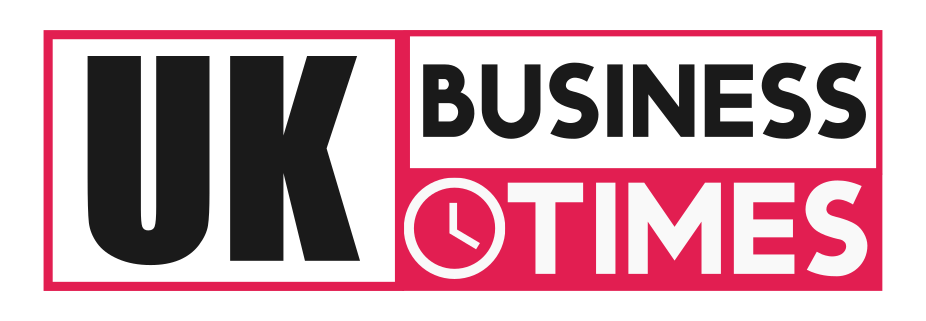Starting a business in the UK has never been more accessible or rewarding. With evolving consumer demands and digital transformation, entrepreneurs have numerous opportunities to launch successful ventures.
This guide explores the top 10 most successful businesses to start in 2025, each offering strong growth potential, manageable startup costs, and adaptability.
Whether you’re a first-time founder or looking to diversify your income, these business ideas are tailored to thrive in today’s competitive and ever-changing UK market.
Why Starting a Business in 2025 Is a Smart Move in the UK?

The UK business landscape is evolving rapidly. As traditional employment models shift and digital innovation accelerates, more people are exploring entrepreneurship as a viable and fulfilling career path.
With strong government support, funding opportunities, and a growing consumer appetite for innovative services, 2025 presents a golden opportunity to launch a business in the UK.
Post-pandemic recovery, remote working, and technological adoption have reshaped how consumers and businesses operate.
From online services to hyper-local solutions, the demand for practical and scalable business models is at an all-time high.
What Makes a Business “Successful” in the Modern UK Market?
A successful business in the UK today is defined by more than just revenue. It thrives when it meets consistent demand, can be scaled without excessive investment, and adapts to changes in market trends. Other indicators of success include:
- High customer retention
- Low overhead costs
- Ability to operate online or remotely
- Flexibility in operations and service delivery
- Sustainability and ethical practices
Whether it’s tech-driven services or hands-on local offerings, the businesses that follow combine these traits for long-term profitability.
What Are the 10 Most Successful Businesses to Start in the UK?
1. Digital Marketing Services

Digital marketing services remain one of the most in-demand business opportunities in the UK, especially for startups and SMEs looking to grow their online presence.
As more businesses transition to digital platforms, there is a high demand for SEO experts, PPC specialists, content marketers, and social media strategists.
This sector allows individuals to operate as freelancers, start boutique agencies, or even scale into full-service firms.
Digital marketing is also highly adaptable it can be managed from home or remotely, making it ideal for entrepreneurs seeking flexible work environments.
Popular service areas include:
- Search Engine Optimisation (SEO)
- Paid advertising (Google Ads, Facebook Ads)
- Email marketing and lead generation
- Website content creation and blogging
- Conversion rate optimisation
Overview of Starting a Digital Marketing Business:
| Aspect | Details |
|---|---|
| Initial Investment | £500–£2,000 (for tools, website, certifications) |
| Required Skills | SEO, PPC, content creation, analytics, client communication |
| Scalability | High – start solo and grow into a team or agency |
| Ideal Client Base | SMEs, startups, e-commerce, local services |
| Challenges | Keeping up with algorithm changes, client retention |
| Revenue Potential | £20,000–£100,000+ annually, depending on scale |
| Tools Needed | Google Analytics, Ahrefs, SEMrush, Canva, Mailchimp |
2. E-commerce Store

E-commerce remains a dominant force in UK retail, accounting for over 25% of all retail sales in the country as of 2025. Starting an online store allows entrepreneurs to tap into national and even global audiences without the expense of physical retail locations.
The barrier to entry is low with platforms like Shopify, Etsy, and WooCommerce. The key lies in choosing the right niche, understanding market demand, and investing in digital advertising and branding.
Common e-commerce models include:
- Dropshipping (no need for inventory)
- Print-on-demand (ideal for custom products)
- Private labelling (more brand control)
- Handmade goods (suitable for artisans and creatives)
Overview of Starting an E-commerce Store:
| Aspect | Details |
|---|---|
| Initial Investment | £1,000–£5,000 (product, platform fees, ads, branding) |
| Required Skills | Product sourcing, copywriting, marketing, basic design |
| Scalability | High – scalable across regions and globally |
| Popular Niches | Home décor, beauty products, eco-friendly goods, fashion |
| Challenges | Inventory management, competition, shipping logistics |
| Revenue Potential | £30,000–£200,000+ annually, depending on niche and traffic |
| Tools Needed | Shopify, Oberlo, Canva, Google Ads, Meta Business Suite |
3. Mobile App Development

The UK tech sector continues to thrive, and mobile app development sits at the core of innovation. Whether for consumer needs or B2B solutions, mobile apps are essential for businesses looking to streamline services, enhance engagement, or enter new markets.
Developers with coding skills (or those who outsource development) can create apps for clients or build their own SaaS (Software as a Service) platforms.
This field requires technical skills but offers some of the highest revenue potential, especially if the app gains popularity or provides a recurring service model.
Common types of apps include:
- Health and fitness tracking apps
- Fintech and budgeting tools
- E-learning and productivity apps
- Niche marketplaces or booking systems
Overview of Starting a Mobile App Development Business:
| Aspect | Details |
|---|---|
| Initial Investment | £2,000–£10,000 (tools, hosting, design, possible outsourcing) |
| Required Skills | Java, Swift, React Native, UI/UX design, API integration |
| Scalability | Very high – product-based or client service expansion |
| Business Models | Client-based services, subscription apps, freemium models |
| Challenges | App store approval, maintenance, updates, competition |
| Revenue Potential | £50,000–£250,000+ annually (higher for popular app products) |
| Tools Needed | Xcode, Android Studio, Firebase, GitHub, Figma |
4. Social Media Management

With over 57 million active social media users in the UK, platforms like Instagram, TikTok, Facebook, and LinkedIn have become critical for business visibility. Yet, many small and medium-sized businesses lack the expertise or time to manage their social media accounts effectively.
This opens the door for social media managers professionals who can create content, schedule posts, manage engagement, and analyse performance metrics. This service is often offered as a freelance gig or scaled into a full-service digital agency.
Why it works:
- Low overhead costs
- Can be done remotely
- High demand across various industries
- Opportunity to offer packages (monthly plans, content creation, paid ads)
Overview of Starting a Social Media Management Business:
| Aspect | Details |
|---|---|
| Initial Investment | £300–£1,000 (laptop, tools, website, branding) |
| Required Skills | Copywriting, graphic design, strategy, analytics |
| Scalability | Medium – from freelancer to small agency |
| Target Clients | Local businesses, influencers, startups, online stores |
| Challenges | Staying updated with algorithms, delivering ROI |
| Revenue Potential | £15,000–£80,000+ annually depending on clients |
| Tools Needed | Canva, Buffer, Hootsuite, Meta Business Suite, Notion |
5. Bookkeeping & Accounting Services

As UK businesses grow in number and complexity, so does the need for professional bookkeeping and accounting services. Entrepreneurs, freelancers, and small companies all require support with managing finances, preparing taxes, and staying compliant with HMRC regulations.
This business model is particularly suited for individuals with experience in finance or accounting, but even beginners can succeed by using software and online training.
Bookkeeping is also increasingly digital, thanks to cloud-based platforms like Xero, QuickBooks, and Sage. This allows professionals to work remotely with clients across the UK.
Key services offered:
- Daily/weekly transaction recording
- VAT return preparation
- Year-end accounts and financial statements
- Payroll services
- Self-assessment filing for sole traders
Overview of Starting a Bookkeeping Business:
| Aspect | Details |
|---|---|
| Initial Investment | £500–£2,000 (software, website, training, insurance) |
| Required Skills | Financial literacy, attention to detail, tax knowledge |
| Scalability | Medium – solo consultant or multi-client firm |
| Target Clients | Freelancers, SMEs, sole traders, contractors |
| Challenges | Managing multiple clients’ deadlines, staying updated on tax |
| Revenue Potential | £20,000–£100,000+ annually depending on clientele |
| Tools Needed | Xero, QuickBooks, Sage, Excel, HMRC tools |
6. Online Courses & Coaching

The online education market in the UK is booming, driven by a demand for flexible, affordable learning options. Whether it’s personal development, business skills, or creative arts, there’s a strong appetite for knowledge and people are willing to pay for high-quality instruction.
Launching an online course or offering one-to-one coaching sessions requires expertise in a specific area, along with the ability to communicate effectively through video or written content.
Online course platforms such as Teachable, Thinkific, and Udemy make it easy to build and sell digital products without technical know-how.
Popular niches include:
- Business and marketing
- Coding and technology
- Fitness and nutrition
- Mental health and wellbeing
- Photography, design, and art
Overview of Starting an Online Course or Coaching Business:
| Aspect | Details |
|---|---|
| Initial Investment | £500–£3,000 (equipment, software, website, marketing) |
| Required Skills | Teaching, content creation, niche expertise |
| Scalability | High – can grow into passive income streams |
| Delivery Formats | Self-paced courses, live coaching, group workshops |
| Challenges | Building an audience, course marketing, creating engaging content |
| Revenue Potential | £25,000–£150,000+ annually depending on pricing and audience |
| Tools Needed | Teachable, Zoom, Canva, Stripe, ConvertKit |
7. Home Cleaning Services

The demand for professional cleaning services in the UK remains consistently strong, particularly in cities where busy professionals and families seek support in maintaining their homes. With relatively low startup costs and straightforward operational requirements, a cleaning business is one of the most accessible and stable ventures for new entrepreneurs.
This service-based model offers flexibility, the ability to scale through staff hiring, and options to specialise in niche areas such as eco-friendly cleaning, end-of-tenancy services, or deep cleaning for rental properties.
Types of services you can offer:
- Regular domestic cleaning
- Deep cleaning
- Move-in/move-out cleaning
- Airbnb property cleaning
- Office or commercial cleaning
The key to success lies in reliability, consistent quality, and effective local marketing.
Overview of Starting a Home Cleaning Service:
| Aspect | Details |
|---|---|
| Initial Investment | £500–£2,500 (cleaning supplies, transportation, insurance) |
| Required Skills | Attention to detail, time management, customer service |
| Scalability | Medium – can expand by hiring staff or franchising |
| Target Clients | Homeowners, landlords, tenants, Airbnb hosts |
| Challenges | Managing schedules, maintaining high standards |
| Revenue Potential | £20,000–£80,000+ annually, depending on scale and region |
| Tools Needed | Cleaning products, booking system, insurance, branded uniforms |
8. Event Management

Event management is a high-energy, high-reward industry for those with strong organisational and interpersonal skills. With the resurgence of in-person and hybrid events post-pandemic, the UK event industry is booming again.
Event planners coordinate everything from weddings and private functions to corporate events, exhibitions, and community festivals. The work involves dealing with vendors, venues, clients, and ensuring all logistics run smoothly.
Many successful event managers start by specialising in one niche such as weddings or corporate conferences, and grow through referrals and portfolio development.
Key services offered:
- Venue and supplier coordination
- Budget management
- Event design and planning
- On-the-day coordination
- Vendor sourcing and contract negotiation
Overview of Starting an Event Management Business:
| Aspect | Details |
|---|---|
| Initial Investment | £1,000–£5,000 (branding, software, marketing, insurance) |
| Required Skills | Organisation, budgeting, communication, creativity |
| Scalability | High – build a team, expand into corporate or destination events |
| Target Clients | Couples, companies, charities, local councils |
| Challenges | Last-minute changes, tight deadlines, managing multiple stakeholders |
| Revenue Potential | £30,000–£120,000+ annually depending on project scale |
| Tools Needed | Trello, Asana, Eventbrite, Canva, contract templates |
9. Pet Care Services

The UK is one of the most pet-loving nations in the world, with millions of households owning at least one pet. This trend has created significant demand for reliable pet care services making it a strong, recession-resistant business opportunity.
Whether it’s dog walking, grooming, pet sitting, or boarding, this industry allows entrepreneurs to start small and grow based on local demand. Pet care is also a business that thrives on trust and word-of-mouth, meaning reputation plays a huge role in long-term success.
Services that can be offered:
- Daily dog walking
- In-home pet visits
- Pet grooming and bathing
- Pet boarding or daycare
- Holiday care services
Overview of Starting a Pet Care Business:
| Aspect | Details |
|---|---|
| Initial Investment | £300–£2,000 (equipment, insurance, transport, marketing) |
| Required Skills | Animal care knowledge, patience, reliability |
| Scalability | Medium – expand via staffing or specialised services |
| Target Clients | Pet owners, working professionals, frequent travellers |
| Challenges | Pet behaviour issues, weather, managing multiple bookings |
| Revenue Potential | £15,000–£70,000+ annually depending on service and coverage |
| Tools Needed | Leashes, pet carriers, booking system, liability insurance |
10. Franchise Business Opportunities

Franchise businesses offer one of the most secure and scalable ways to become an entrepreneur especially for those who may not have a unique business idea or prior experience in building a company from scratch.
In the UK, franchising is a mature and well-regulated industry with hundreds of options across sectors such as food and beverage, fitness, education, cleaning, and retail. By investing in a franchise, entrepreneurs benefit from brand recognition, an established customer base, operational support, and training.
While initial investments can be higher compared to independent startups, the risks are generally lower because the model has already been tested and proven to work.
Popular franchise sectors in the UK:
- Coffee shops and fast food (e.g., Costa Coffee, Subway)
- Health and fitness (e.g., Anytime Fitness, F45)
- Education and tutoring (e.g., Kumon, Tutor Doctor)
- Cleaning and domestic services (e.g., Molly Maid)
- Automotive and maintenance (e.g., Snap-on Tools)
Advantages of franchising:
- Recognised brand with existing marketing systems
- Training and ongoing support
- Easier access to finance
- Higher success rate than independent startups
Overview of Starting a Franchise Business:
| Aspect | Details |
|---|---|
| Initial Investment | £5,000–£100,000+ depending on brand and sector |
| Required Skills | Business operations, leadership, customer service |
| Scalability | High – open multiple units or expand territory |
| Target Clients | Based on franchise model – consumers, businesses, families |
| Challenges | Adhering to franchisor rules, upfront costs, royalty payments |
| Revenue Potential | £50,000–£250,000+ annually depending on model and location |
| Support Provided | Training, marketing, operations manual, brand assets |
Comparison Table: Top Business Ideas at a Glance
| Business Type | Investment Level | Skills Needed | Scalability | Profit Potential |
|---|---|---|---|---|
| Digital Marketing | Low | SEO, Content, PPC | High | High |
| E-commerce Store | Medium | Product sourcing, ads | High | High |
| Mobile App Development | Medium | Coding, UX/UI | High | Very High |
| Social Media Management | Low | Copywriting, Strategy | Medium | Medium |
| Bookkeeping | Low | Accounting, Finance | Medium | Medium |
| Online Courses | Low | Teaching, Content Dev. | High | High |
| Home Cleaning | Low | Organisation, Service | Medium | Medium |
| Event Management | Medium | Planning, Coordination | High | High |
| Pet Care Services | Low | Animal Care, Reliability | Medium | Medium |
| Franchise Opportunities | Medium-High | Business Management | High | High |
What Are the Tips for Choosing the Right Business to Start?
Choosing the right business model depends on various factors, including your skills, budget, and long-term goals. Consider the following:
- Conduct market research on your local area
- Identify what industries align with your interests and abilities
- Understand legal and financial obligations
- Start small and validate your idea before expanding
- Leverage online tools and platforms to minimise initial costs
Conclusion
The business opportunities in the UK are diverse and growing, particularly for those who combine market insight with modern tools and strategies. Whether it’s digital marketing, e-commerce, or offering hands-on services, the key is to start with a clear plan, understand your audience, and be ready to adapt.
Entrepreneurs who focus on scalability, customer value, and innovation will find great success in the evolving UK market.
Frequently Asked Questions (FAQ)
What is the most profitable small business to start in the UK?
Digital marketing, mobile app development, and e-commerce stores are among the most profitable due to low overhead costs and increasing demand.
How much money do I need to start a small business in the UK?
Some businesses, like social media management or cleaning services, can start with under £1,000. Others, such as e-commerce or franchising, may require £5,000 to £20,000+.
Which business is best for beginners in the UK?
Beginners often start with service-based businesses like bookkeeping, cleaning, or pet care due to lower risk and ease of entry.
Are online businesses successful in the UK?
Yes, online businesses are thriving, particularly in e-learning, e-commerce, and digital services, supported by a tech-savvy population.
What are the legal requirements to start a business in the UK?
Most businesses must register with HMRC (for sole traders) or Companies House (for limited companies) and comply with tax and employment regulations.
Is franchising a good business option in the UK?
Franchising offers a low-risk way to start a business, especially for those without prior experience, thanks to established brand and operational support.
What industries are growing the fastest in the UK in 2025?
Technology, digital marketing, pet care, and e-commerce are among the fastest-growing sectors with high revenue potential.
{
“@context”: “http://schema.org/”,
“@type”: “FAQPage”,
“mainEntity”: [
{
“@type”: “Question”,
“name”: “What is the most profitable small business to start in the UK?”,
“acceptedAnswer”: {
“@type”: “Answer”,
“text”: “Digital marketing, mobile app development, and e-commerce stores are among the most profitable due to low overhead costs and increasing demand.”
}
},
{
“@type”: “Question”,
“name”: “How much money do I need to start a small business in the UK?”,
“acceptedAnswer”: {
“@type”: “Answer”,
“text”: “Some businesses, like social media management or cleaning services, can start with under £1,000. Others, such as e-commerce or franchising, may require £5,000 to £20,000+.”
}
},
{
“@type”: “Question”,
“name”: “Which business is best for beginners in the UK?”,
“acceptedAnswer”: {
“@type”: “Answer”,
“text”: “Beginners often start with service-based businesses like bookkeeping, cleaning, or pet care due to lower risk and ease of entry.”
}
},
{
“@type”: “Question”,
“name”: “Are online businesses successful in the UK?”,
“acceptedAnswer”: {
“@type”: “Answer”,
“text”: “Yes, online businesses are thriving, particularly in e-learning, e-commerce, and digital services, supported by a tech-savvy population.”
}
},
{
“@type”: “Question”,
“name”: “What are the legal requirements to start a business in the UK?”,
“acceptedAnswer”: {
“@type”: “Answer”,
“text”: “Most businesses must register with HMRC (for sole traders) or Companies House (for limited companies) and comply with tax and employment regulations.”
}
},
{
“@type”: “Question”,
“name”: “Is franchising a good business option in the UK?”,
“acceptedAnswer”: {
“@type”: “Answer”,
“text”: “Franchising offers a low-risk way to start a business, especially for those without prior experience, thanks to established brand and operational support.”
}
},
{
“@type”: “Question”,
“name”: “What industries are growing the fastest in the UK in 2025?”,
“acceptedAnswer”: {
“@type”: “Answer”,
“text”: “Technology, digital marketing, pet care, and e-commerce are among the fastest-growing sectors with high revenue potential.”
}
}
]
}







